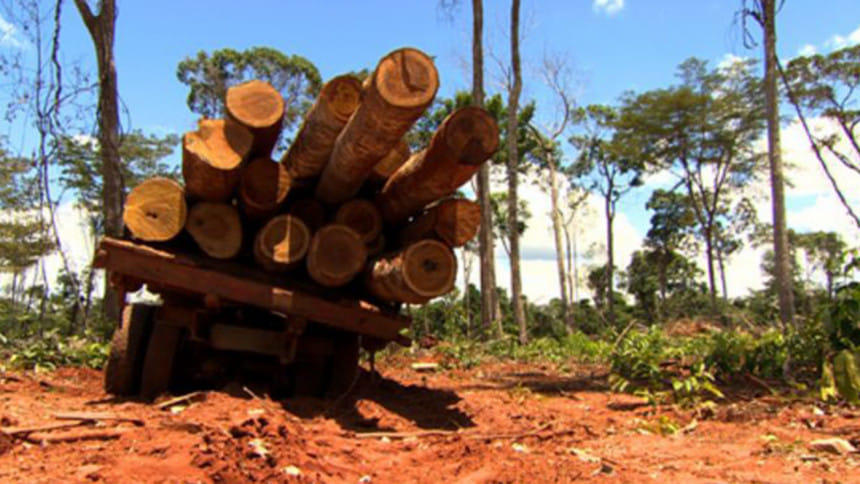UN report: 'Decisive year' for world's forestry

The world's forests face a "decisive year" as nations prepare to adopt the Sustainable Development Goals and gather for key climate talks.
In a UN report on forests, senior official Jose Graziano da Silva called slowing deforestation rates "positive".
But he added that "this positive trend needs strengthening" as the report showed that an area the size of South Africa had been lost since 1990.
The report was published at the World Forestry Congress in South Africa.
"The contribution of forests to the wellbeing of humankind are extraordinarily vast and far-reach," said Graziano da Silva, director-general of the UN Food and Agriculture Organization (FAO).
"Forests play a fundamental role in combating rural poverty, ensuring food security and providing decent livelihoods."
He added that forests were also key components in the natural world's ability to provide environmental services, such as clean air and water, biodiversity conservation and climate change mitigation.
The UN's Global Forest Resource Assessment 2015, compiled and published by the FAO, reports that an estimated 129 million hectares of forest (an area almost equivalent in size to South Africa) has been lost since 1990.
The assessment, which covered 234 countries and territories, reported the biggest losses of forest cover occurring in Africa, South America and South-East Asia.
However, globally, the study said that the net annual rate of forest loss had slowed from 0.18 percent in the early 1990s to 0.08 percent during the period between 2010 and 2015.
While the area of natural forests (which account for an estimate 93 percent of the globe's forest cover) continued to decrease, the planted forest area had seen an increase, the report observed.
FAO Global Forest Resources Assessment Team leader Kenneth MacDicken said: "The management of forests has improved dramatically over the past 25 years.
"This includes planning, knowledge sharing, legislation, policies - a whole range of important steps that countries have implemented or are implementing," he added.
Asia dominate the list of the top 10 nations that have reported the greatest forest area gain between 2010 and 2015, however there are honourable mentions for the US and France.
BIODIVERSITY CONCERNS
Forests are also hotspots for biodiversity, providing a home for half of the world's terrestrial species of animals, plants and insects.
Despite recent progress in increasing the area offered conservation protection status, the FAO warned that the threat to biodiversity continued.
Graziano da Silva cautioned: "We will not succeed in reducing the impact of climate change and promoting sustainable development if he do not preserve our forests and sustainably use the many resources they offer us."

 For all latest news, follow The Daily Star's Google News channel.
For all latest news, follow The Daily Star's Google News channel. 



Comments